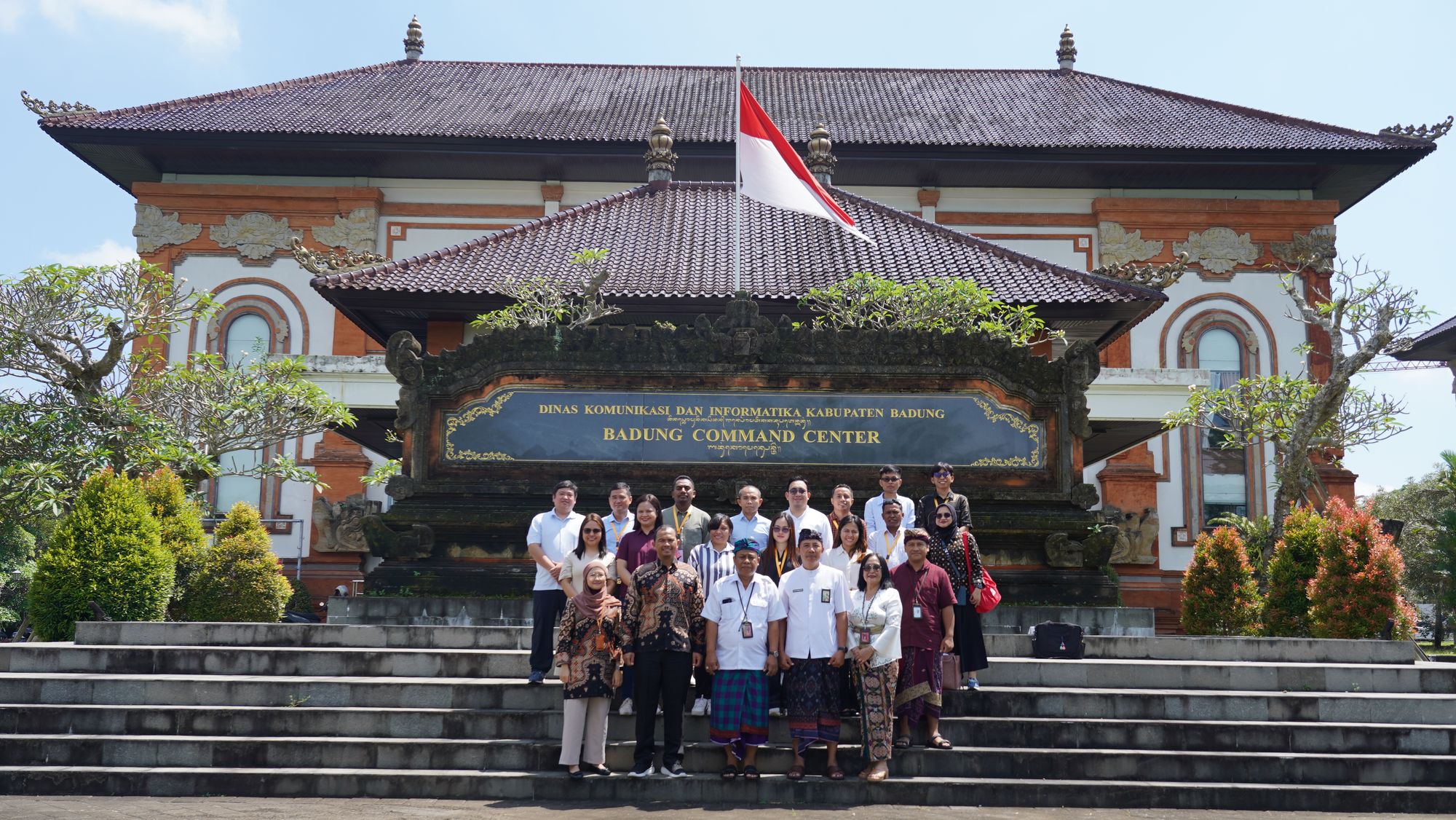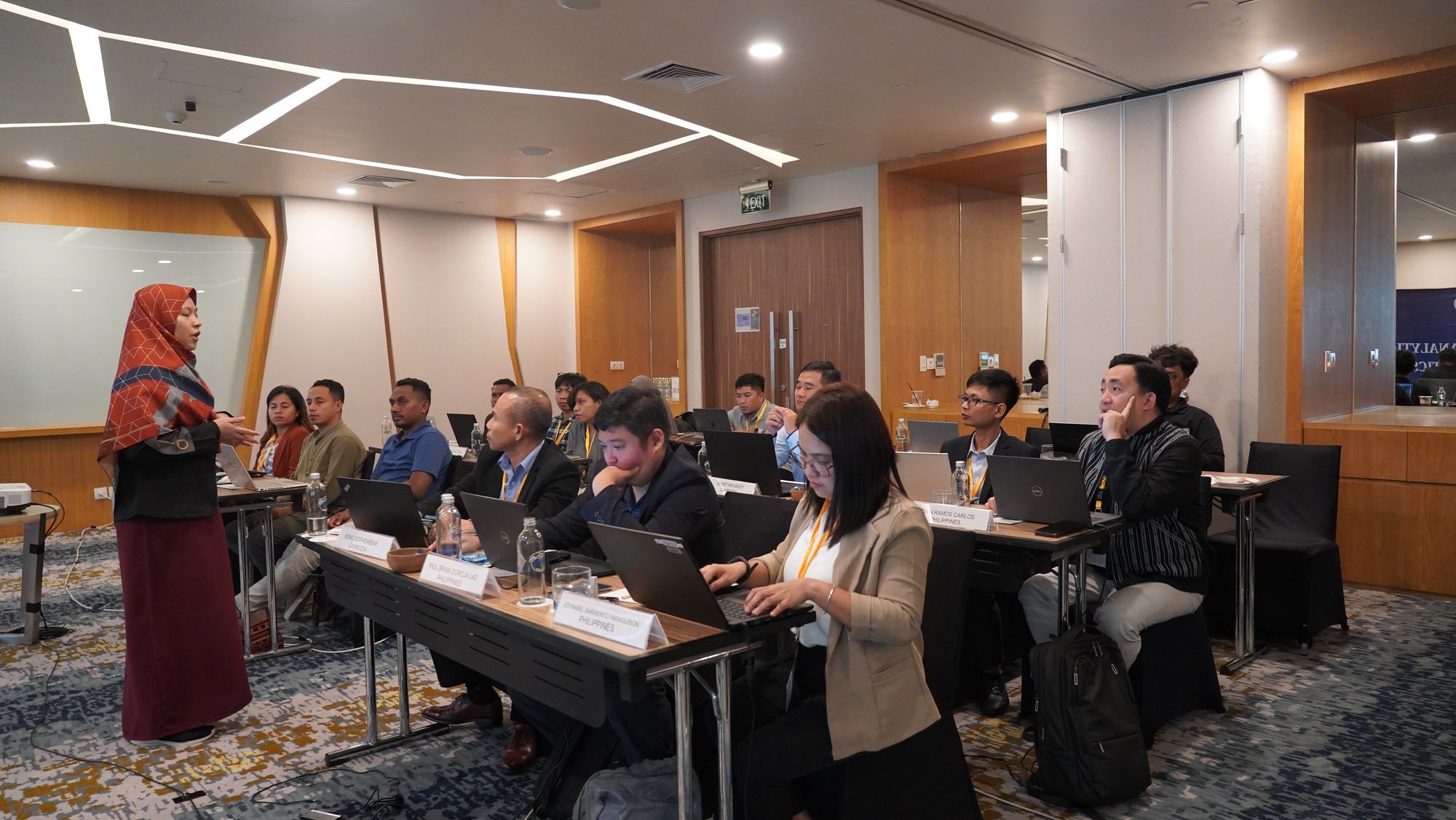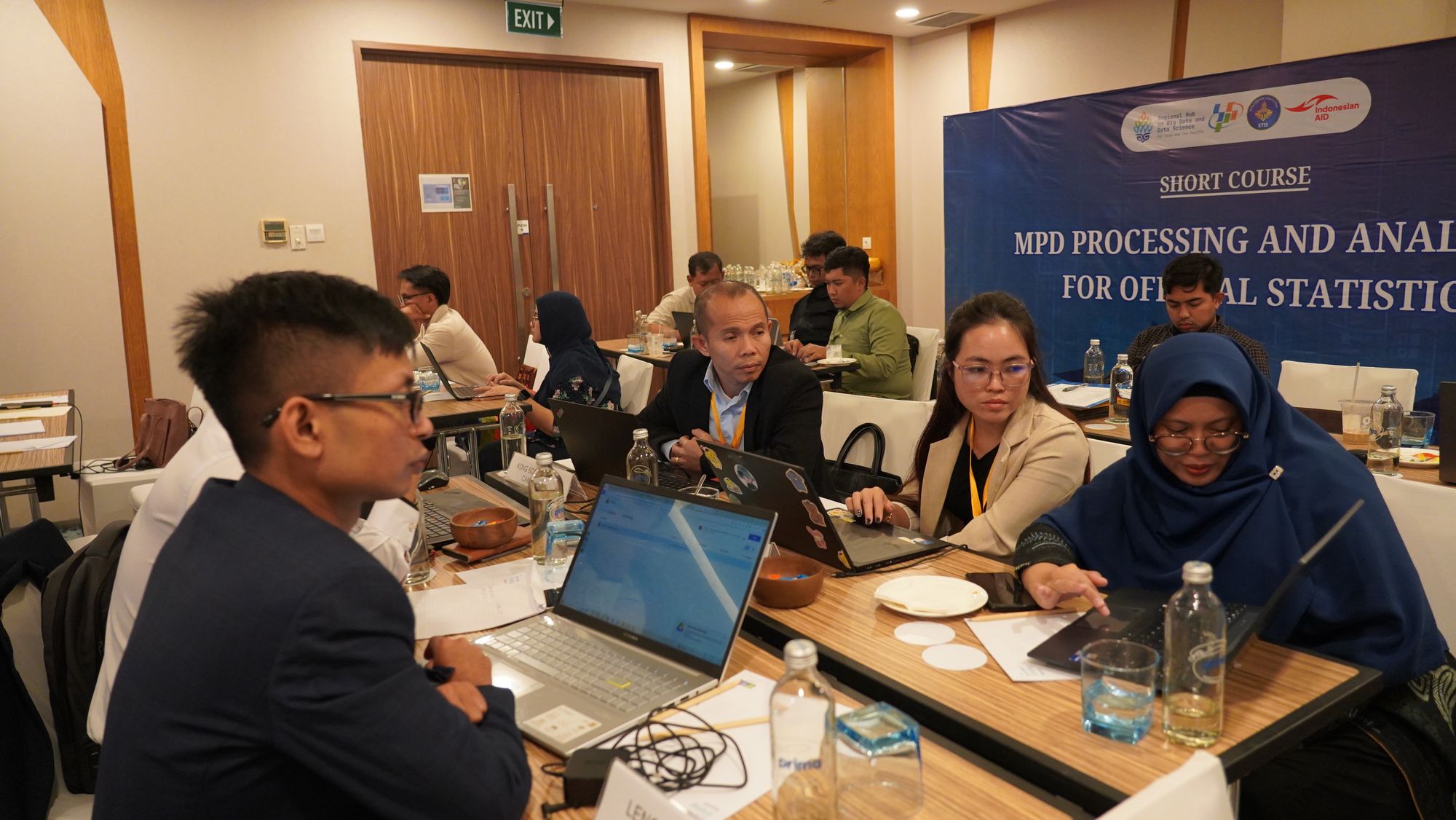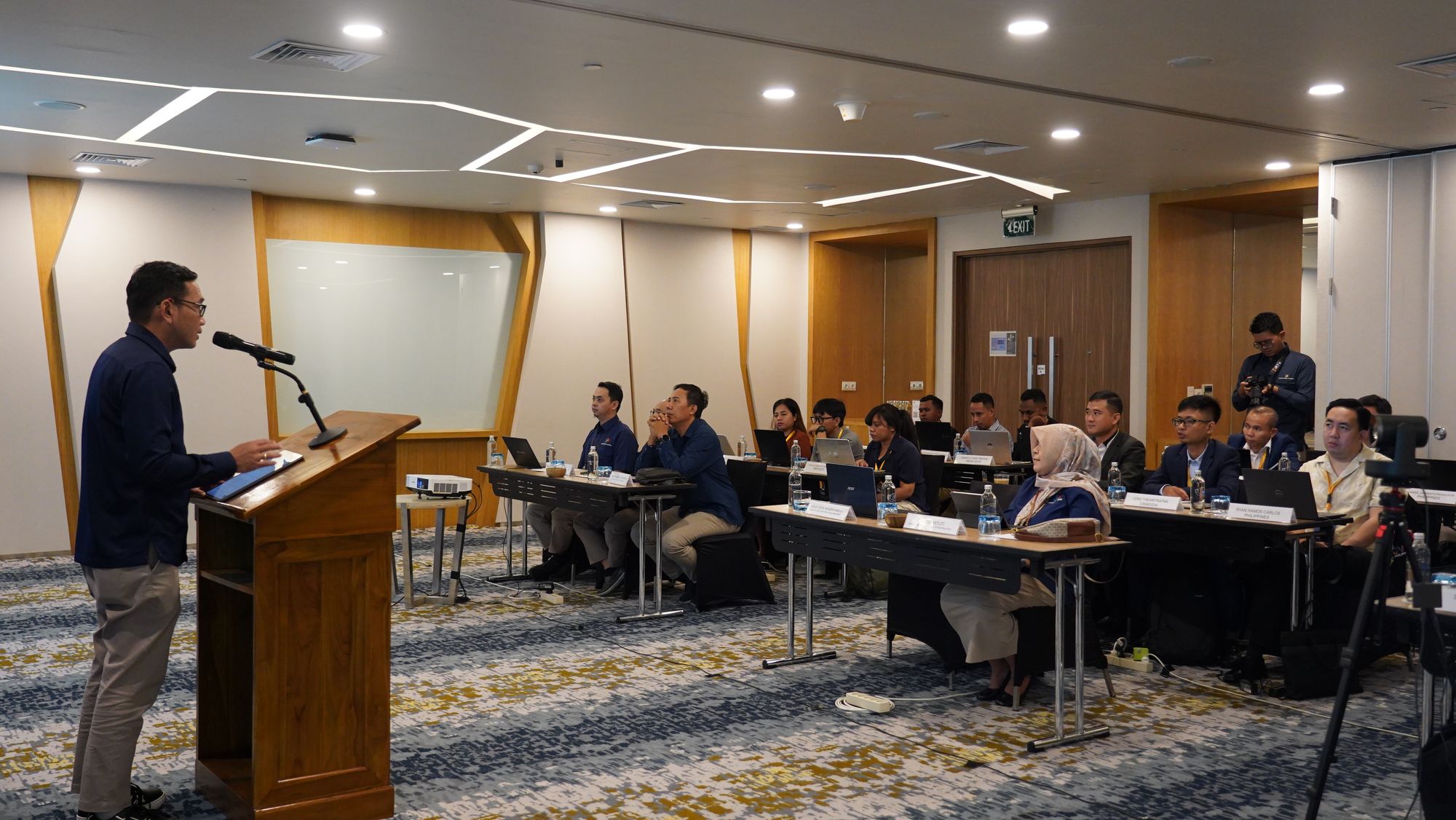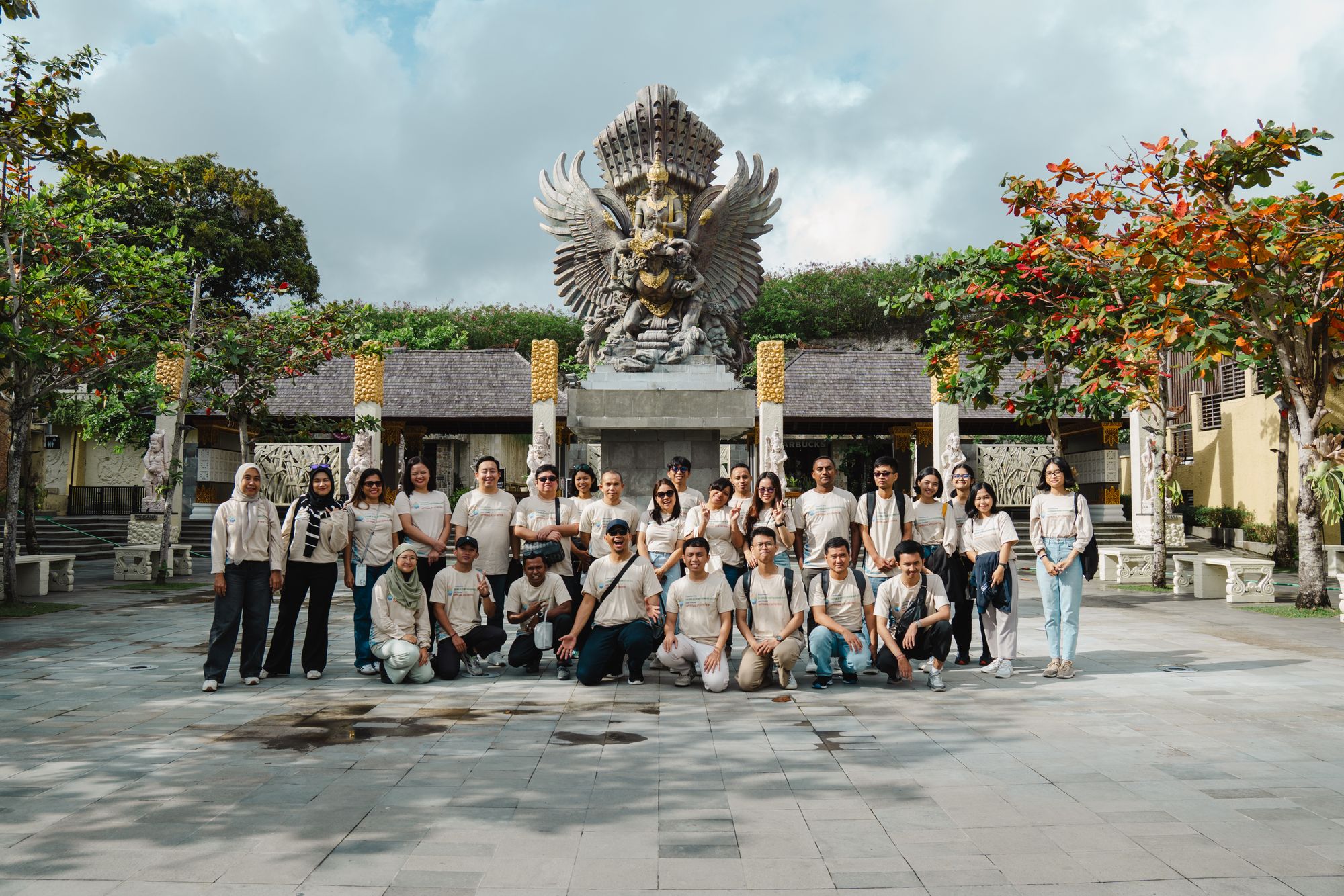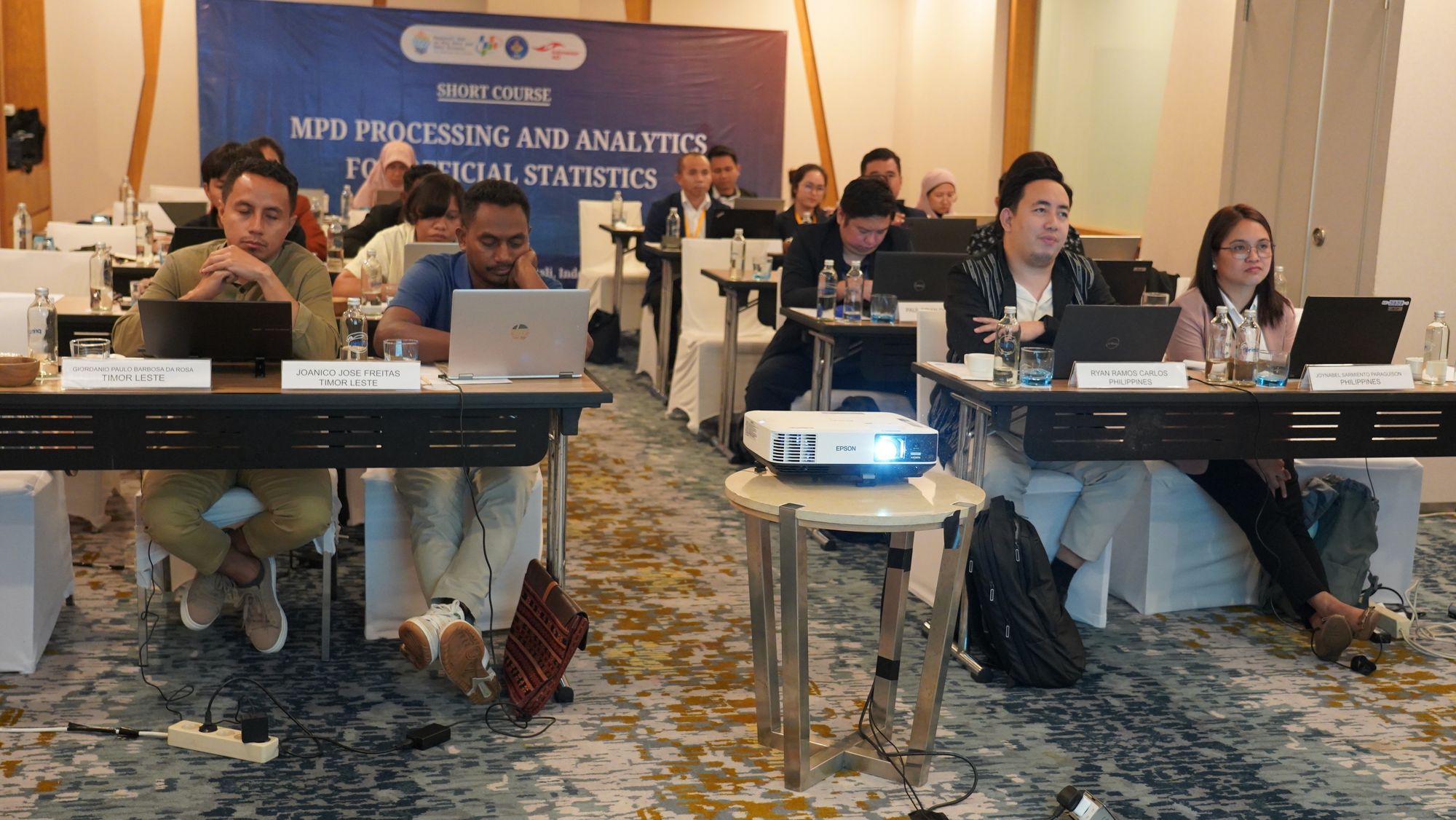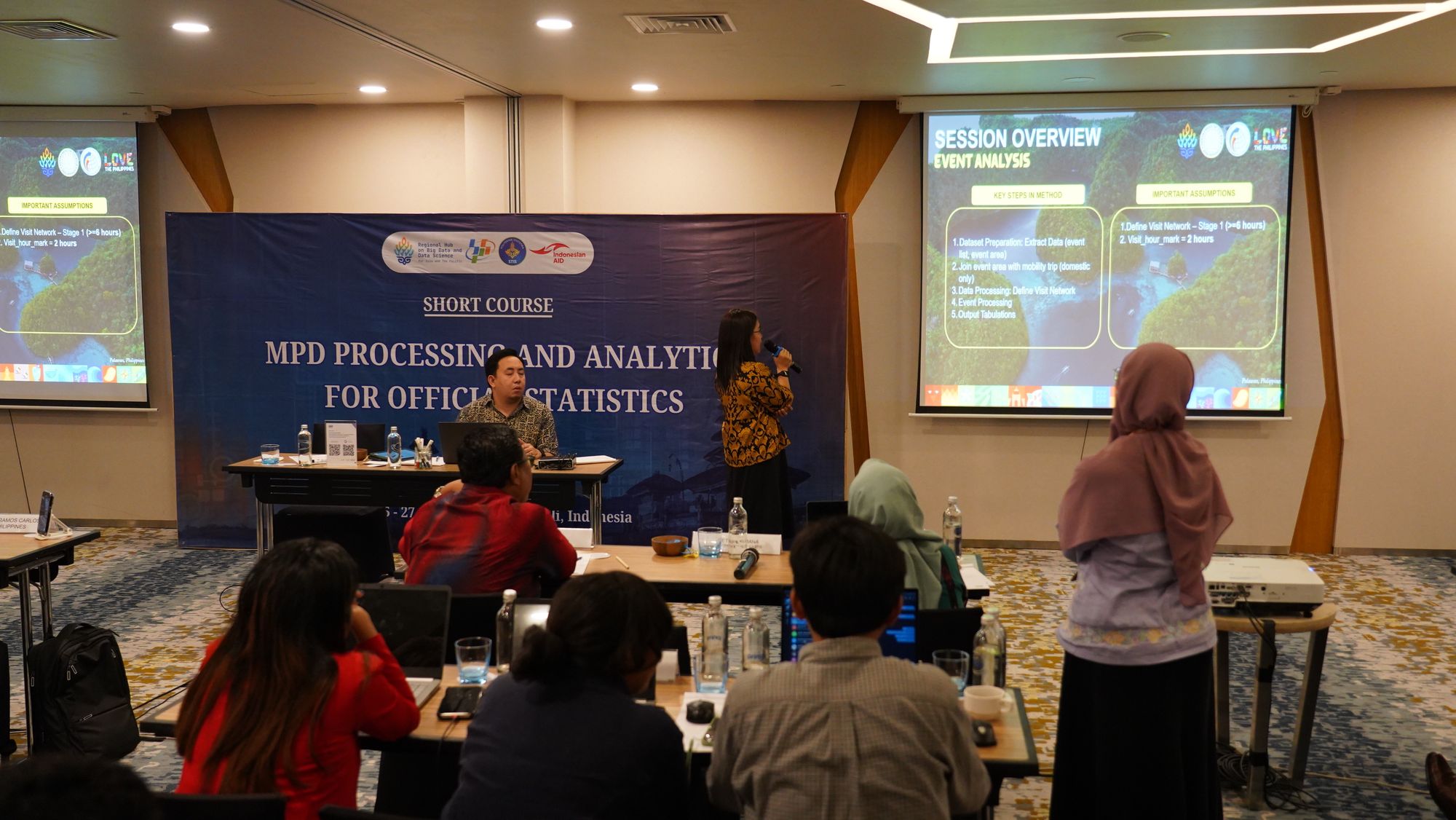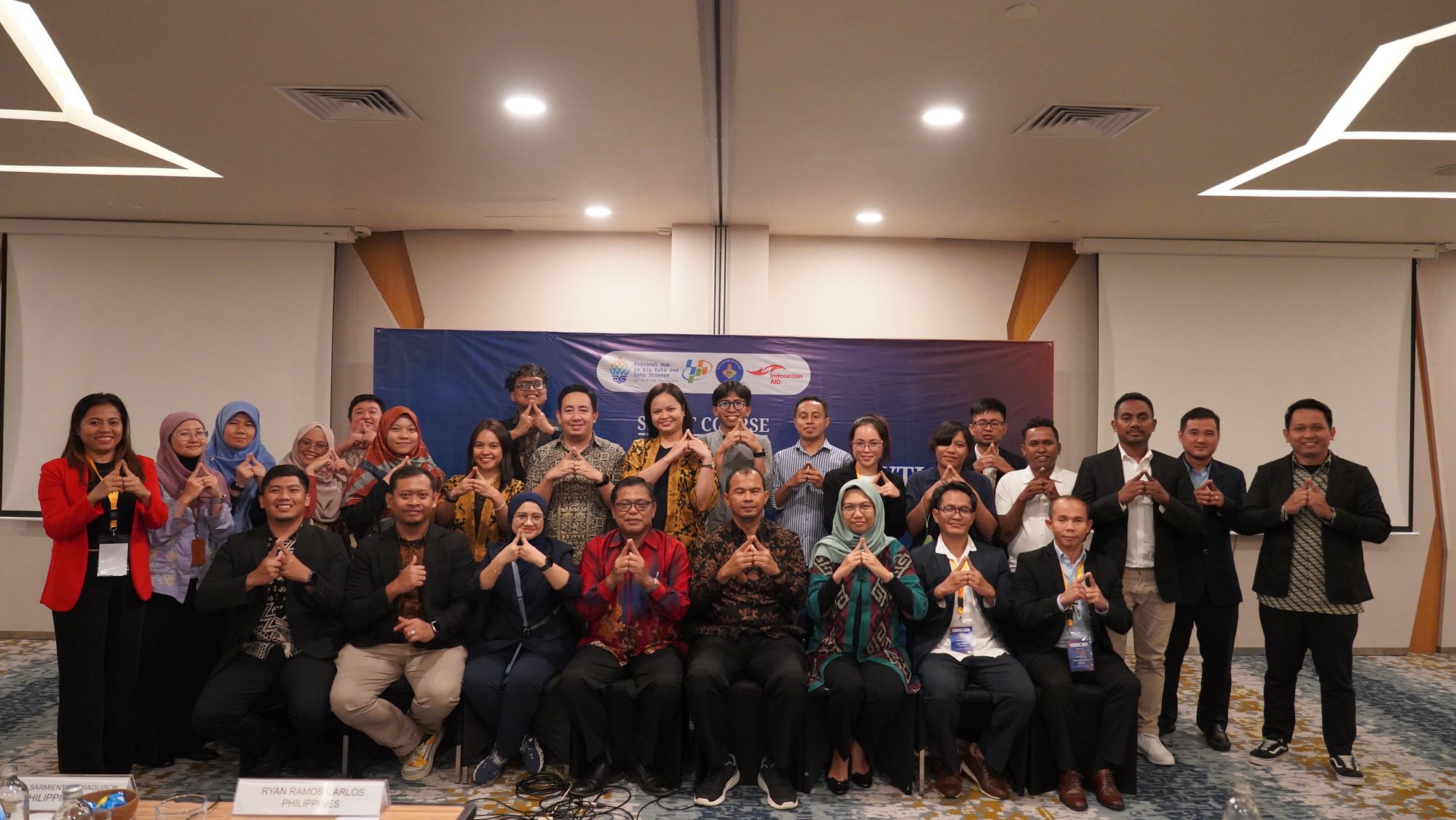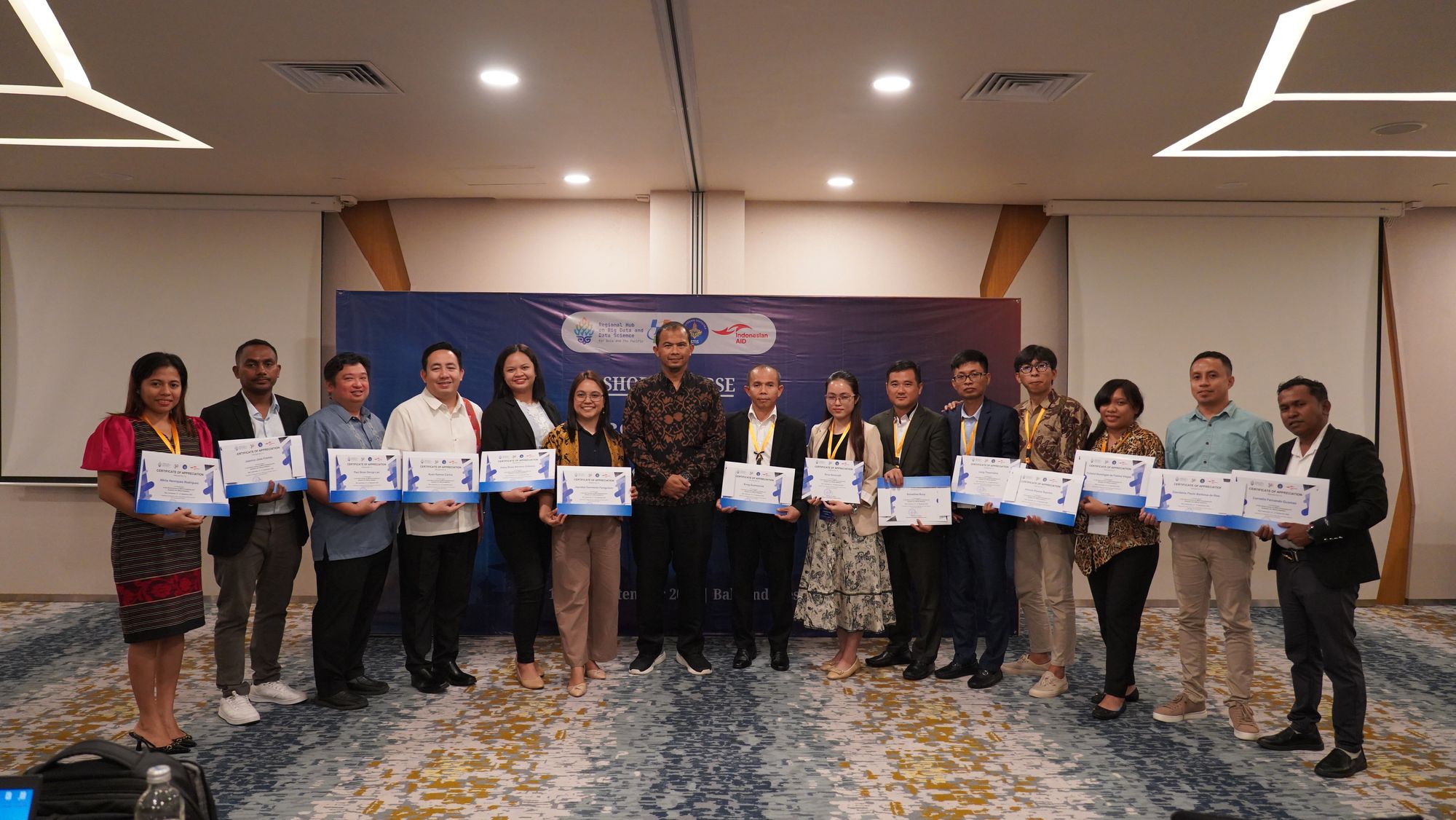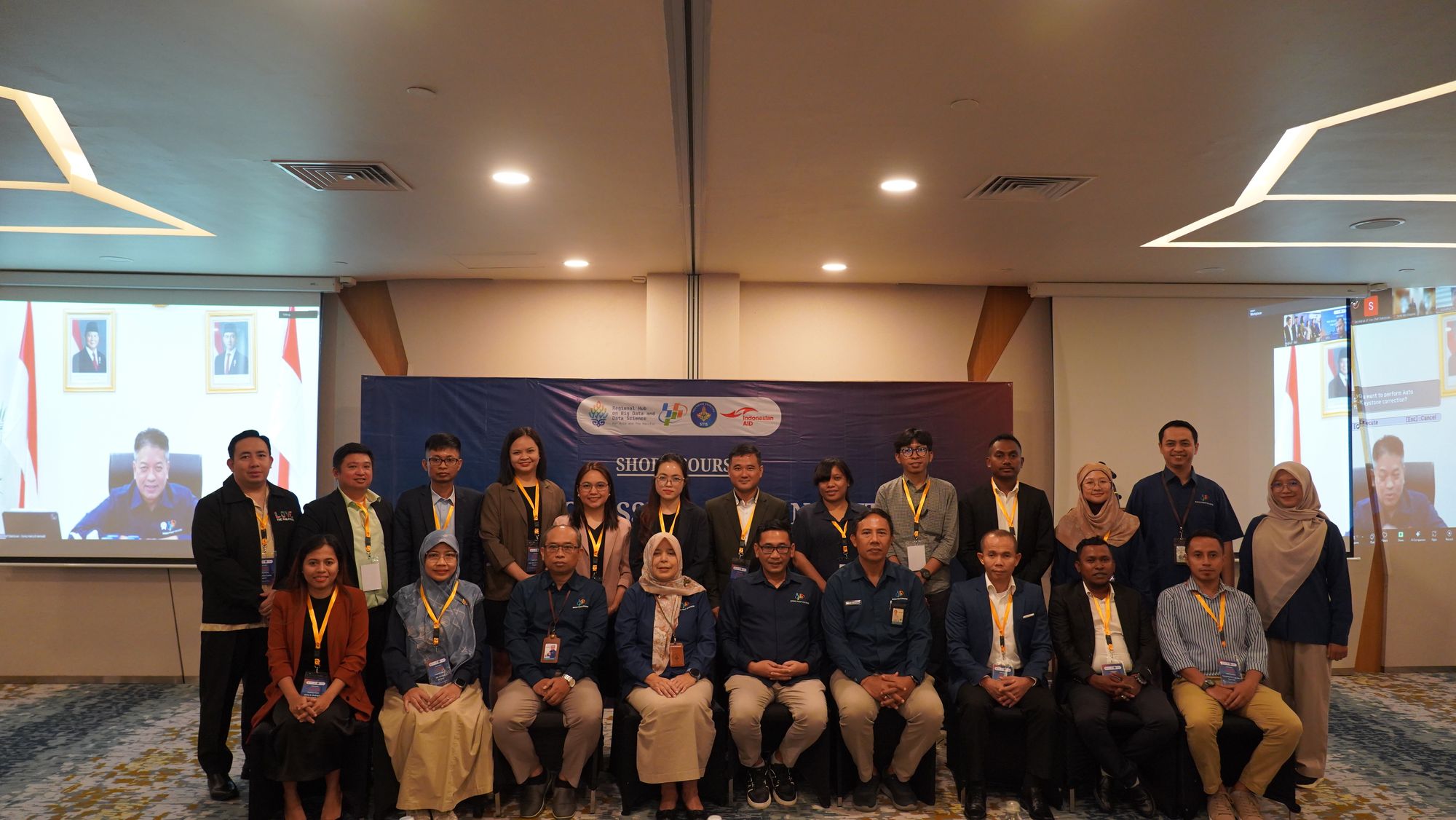15–27 September 2025 | Holiday Inn Resort Baruna Bali, Indonesia
As the world steps deeper into the era of Big Data, the demand for more timely, accurate, and relevant statistics has become increasingly essential for evidence-based decision-making. Recognizing this transformation, the Regional Hub on Big Data and Data Science for Asia and the Pacific—hosted by Statistics Indonesia (BPS) and Politeknik Statistika STIS—organized a two-week Short Course on Mobile Positioning Data (MPD) for Official Statistics in Bali from September 15–27, 2025.
This program represents the technical continuation of the Regional Hub’s broader initiative to strengthen both policy and technical capacities in the region. Following the Executive Training for Policy Makers held in Jakarta in July 2025, which discussed strategic directions and governance frameworks, the Bali course focused on building practical competencies for technical staff to transform raw mobile positioning data into actionable insights.
Harnessing the Power of Mobile Positioning Data
Mobile Positioning Data (MPD) is generated whenever mobile network subscribers interact with cellular networks, through calls, messages, or internet usage. This massive, high-frequency, and spatially detailed data offers immense potential for official statistics, particularly in analyzing population mobility, tourism flows, commuting behavior, and urban dynamics.
In Indonesia, the use of MPD has already proven successful in enriching tourism statistics, helping policymakers monitor tourist movements more accurately and develop evidence-based strategies for sustainable economic growth. Building upon this experience, the Regional Hub aims to extend similar capacities across neighboring countries through structured training and knowledge-sharing.
Building Skills and Collaboration Across Borders
The two-week course brought together 14 technical professionals from National Statistical Offices (NSOs), tourism authorities, and Mobile Network Operators (MNOs) in the Philippines, Cambodia, and Timor-Leste. Their diverse background: spanning ICT, statistics, and data processing, ensured that the learning outcomes could be directly applied to each institution’s work.
Participants received intensive, hands-on training in data science tools such as SQL, Python, and PySpark, focusing on how to manage large datasets and conduct analyses including clustering, stop-spot detection, and event identification. The sessions were designed not only to enhance technical skills but also to deepen participants’ understanding of how MPD can be integrated into official statistics—particularly in tourism, a key economic sector across the region.
Beyond the technical modules, the program fostered regional cooperation and dialogue. By working together on country-specific feasibility studies, participants explored how MPD-based indicators could be introduced into their national statistical systems, identifying challenges such as data access, privacy frameworks, and the need for cross-sector collaboration. These discussions highlighted the importance of sustained partnerships between governments, statistical agencies, and private sector data providers.
From Theory to Practice
Throughout the 13 effective training days, participants progressed through a structured curriculum that began with data science foundations and culminated in advanced MPD applications. The first week introduced concepts in database systems, Python-based data analysis, and distributed computing with PySpark. In the second week, the focus shifted to MPD-specific applications, linking big data analytics to real-world policy needs such as tourism monitoring and mobility studies.
Each country team produced a feasibility assessment outlining potential pathways for integrating MPD into official statistics, mapping opportunities for collaboration with mobile network operators, and identifying technical and institutional readiness. These concrete outputs provided valuable starting points for future national initiatives and pilot projects.
Strengthening Regional Readiness for Big Data
The outcomes of the course extend well beyond the classroom. Participants returned home equipped not only with new analytical skills but also with a shared vision for how MPD can transform official statistics. The program laid the groundwork for future cooperation, fostering a growing community of practice committed to advancing data innovation in the Asia-Pacific region.
Through this experience, the Regional Hub continues to build momentum toward a more data-driven ecosystem—one where policy and technology go hand in hand to support inclusive and sustainable development.
Appreciation and Collaboration
The success of the Short Course on MPD was made possible through the support of Indonesia AID as the funding partner, the commitment of BPS–Statistics Indonesia, and the dedication of the Regional Hub Secretariat at Politeknik Statistika STIS.
Special appreciation goes to the trainers and facilitators from BPS and STIS, whose guidance extended beyond technical instruction to mentorship throughout the exercises. Above all, the organizers express deep gratitude to all participants for their active engagement, collaboration, and enthusiasm, reflecting the shared spirit of advancing official statistics in the digital era.
| SHORT COURSE AGENDA | |||
| 15 September - 27 September 2025 | |||
| Date | Time | Topic | Materials |
|---|---|---|---|
| Monday, 15 September 2025 | 08.00 – 09.00 | Registration | |
| 09.00 – 09.15 | Event Report | ||
| 09.15 – 09.30 | Welcome Speech | ||
| 09.30 – 09.45 | Opening Speech | ||
| 09.45 – 09.50 | Group Photo | ||
| 09.50 – 10.10 | Coffee Break | ||
| 10.10 – 12.10 |
Databases for Big Data Analytics - Getting started with Database - Install RDBMS |
Slides | |
| 12.10 – 13.30 | Lunch Break | ||
| 13.30 – 15.30 |
Databases for Big Data Analytics - Querying Data with SQL (DDL) - DDL Exercise |
Slides | |
| 15.30 – 15.45 | Coffee Break | ||
| 15.45 – 16.45 |
Databases for Big Data Analytics - Querying Data with SQL (DML) - Part 1 - DDL Exercise |
Slides | |
| Tuesday, 16 September 2025 | 09.00 – 10.00 |
Databases for Big Data Analytics - Querying Data with SQL (DML) - Part 2 - DML Exercise |
Slides |
| 10.00 – 10.15 | Coffee Break | ||
| 10.15 – 12.15 |
Databases for Big Data Analytics and Introduction to NoSQL |
Slides | |
| 12.15 – 13.30 | Lunch Break | ||
| 13.30 – 15.30 |
Databases for Big Data Analytics MongoDB and NoSQL Exercise |
Slides | |
| 15.30 – 15.45 | Coffee Break | ||
| 15.45 – 16.45 |
Databases for Big Data Analytics MongoDB and NoSQL Exercise |
Slides | |
| Wednesday, 17 September 2025 | 09.00 – 10.00 |
Python for Big Data Analytics - Introduction to Google Colab - Introduction to Python - Write/Read Files - Pandas Basic |
Slides |
| 10.00 – 10.15 | Coffee Break | ||
| 10.15 – 12.15 |
Python for Big Data Analytics - Data Cleaning & Transformation - Exploratory Data Analysis (EDA) |
Slides | |
| 12.15 – 13.30 | Lunch Break | ||
| 13.30 – 15.30 |
Python for Big Data Analytics Data Visualization using Python |
Slides | |
| 15.30 – 15.45 | Coffee Break | ||
| 15.45 – 16.45 |
Python for Big Data Analytics Data Visualization using Python |
Slides | |
| Thursday, 18 September 2025 | 09.00 – 10.00 |
Python for Big Data Analytics Data Visualization using Kepler.gl |
Slides |
| 10.00 – 10.15 | Coffee Break | ||
| 10.15 – 12.15 |
Python for Big Data Analytics - Introduction to PySpark - PySpark DataFrame Operations |
Slides , Slides | |
| 12.15 – 13.30 | Lunch Break | ||
| 13.30 – 15.30 |
Python for Big Data Analytics - Joining & aggregating using PySpark - PySpark window function - SQL using PySpark |
Slides | |
| 15.30 – 15.45 | Coffee Break | ||
| 15.45 – 16.45 |
Python for Big Data Analytics DBSCAN Clustering |
Slides , Slides | |
| Friday, 19 September 2025 | 09.00 – 10.00 |
Concept and Definition of Tourism Domestic & Inbound |
Slides |
| 10.00 – 10.15 | Coffee Break | ||
| 10.15 – 12.15 |
Concept and Definition of Tourism Domestic & Inbound |
Slides | |
| 12.15 – 13.30 | Lunch Break | ||
| 13.30 – 15.30 | Introduction to MPD and MPD Access | Slides | |
| 15.30 – 15.45 | Coffee Break | ||
| 15.45 – 16.45 | MPD for ICT Indicators | Slides | |
| Saturday, 20 September 2025 | 09.00 – 10.00 | Quality Assurance | Slides |
| 10.00 – 10.15 | Coffee Break | ||
| 10.15 – 12.15 | Quality Assurance | Slides | |
| 12.15 – 13.30 | Lunch Break | ||
| 13.30 – 15.30 | Usual Environment | Slides | |
| 15.30 – 15.45 | Coffee Break | ||
| 15.45 – 16.45 | Usual Environment | Slides | |
| Sunday, 21 September 2025 | 09.00 – 10.00 | Stopspot | Slides |
| 10.00 – 10.15 | Coffee Break | ||
| 10.15 – 12.15 | Stopspot | Slides | |
| 12.15 – 13.30 | Lunch Break | ||
| 13.30 – 15.30 | Domestic Tourism | Slides | |
| 15.30 – 15.45 | Coffee Break | ||
| 15.45 – 16.45 | Domestic Tourism | Slides | |
| Monday, 22 September 2025 | 08.00 – 12.00 | Visit to Badung Smart City | |
| 12.00 – 13.30 | Lunch Break | ||
| 13.30 – 15.30 | Inbound Tourism | Slides | |
| 15.30 – 15.45 | Coffee Break | ||
| 15.45 – 16.45 | Inbound Tourism | Slides | |
| Tuesday, 23 September 2025 | 09.00 – 10.00 | Event Analysis | |
| 10.00 – 10.15 | Coffee Break | ||
| 10.15 – 12.15 | Event Analysis | Slides | |
| 12.15 – 13.30 | Lunch Break | ||
| 13.30 – 15.30 | Survey Design and Weighting | Slides | |
| 15.30 – 15.45 | Coffee Break | ||
| 15.45 – 16.45 | Survey Design and Weighting | Slides | |
| Wednesday, 24 September 2025 | 09.00 – 10.00 | Tourism Statistics | Slides |
| 10.00 – 10.15 | Coffee Break | ||
| 10.15 – 12.15 | Tourism Statistics | Slides | |
| 12.15 – 13.30 | Lunch Break | ||
| 13.30 – 15.30 | Group Presentation | ||
| 15.30 – 15.45 | Lunch Break | ||
| 15.45 – 16.45 | Group Presentation | ||
| Thursday, 25 September 2025 | 09.00 – 16.00 | Group Discussion | |
| Friday, 26 September 2025 | 09.00 – 12.00 | Group Discussion | |
| 12.00 – 14.00 | Lunch Break | ||
| 14.00 – 15.00 | Big Data for Official Statistics | ||
| 15.00 – 16.00 | Closing | ||
| Saturday, 27 September 2025 | 08.00 – 17.00 | Sociocultural Activity | |
